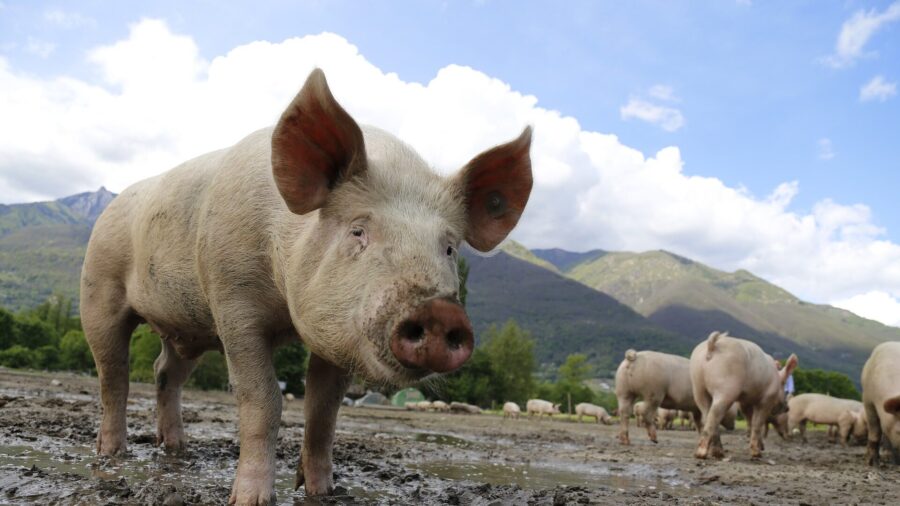Scientists Are Growing Human Organs In The Weirdest Place

For years, dedicated scientists have pursued the ambitious goal of growing functional human organs within pigs, striving to address the critical organ shortage crisis. A groundbreaking study published in Cell Stem Study sheds light on remarkable advancements in this endeavor, where researchers have successfully managed to grow kidneys predominantly composed of human cells inside pig embryos. This astonishing achievement offers hope for the future of life-saving human organ transplants, providing a potential solution to the dire shortage of donor organs worldwide.
Pigs are genetically close to humans, so close in fact scientists are growing human cells inside of pig embryos.
Miguel Esteban and his team at the Guangzhou Institutes of Biomedicine and Health in China conducted the research. They focused on developing human-pig chimeric embryos comprising both human and pig cells. When these embryos were transplanted into surrogate pig mothers, they exhibited kidneys mainly composed of human cells, representing the first time scientists have grown human organs inside other animals.
Esteban said that the research to successfully grow human organs, specifically kidneys, inside of pigs spanned five years. He explained that their approach involved genetic modifications to the pig to provide a conducive environment for human cells to flourish, reducing competition with pig cells. Additionally, he said his team engineered the human cells to adapt and thrive in an environment that differed from their natural habitat.

The kidneys, although composed mostly of human cells, included pig-derived vasculature and nerves, rendering them unsuitable for direct transplantation. Additionally, the hybrid embryos were predominantly pig-dominated, containing minimal human cells in the brain and central nervous system.
While researchers have achieved significant strides in growing human organs within pigs, there remains a substantial distance to cover before realizing practical applications.
This has prompted ethical concerns and led to stringent legal regulations in research involving such hybrids across many countries. As of now, the feasibility of producing entirely human organs using existing genetic engineering techniques remains uncertain.
Mary Garry, a University of Minnesota professor specializing in chimeric organisms, believes that generating human organs within pigs could greatly alleviate the worldwide organ shortage crisis. Garry’s research team achieved significant milestones in 2020 and 2021 by successfully growing humanized blood vessels and skeletal muscle in pigs. However, Garry acknowledges the substantial challenge ahead, as humans diverged from pigs approximately 80 million years ago, making growing human cells in pig embryos an inefficient endeavor.
There is a growing need for human organs, in particular kidneys, and growing them from pig embryos might end up saving countless lives.
The Organ Procurement and Transplantation Network reports that in the United States, the national transplant waiting list exceeds 100,000 people, with a heartbreaking statistic of 17 individuals losing their lives each day while awaiting a donor organ. Notably, kidneys are the most sought-after human organs, with nearly 89,000 Americans desperately needing one as of September. The pressing demand for organ donations underscores the urgency of advancing research in organ generation and transplantation.
While researchers have achieved significant strides in growing human organs within pigs, there remains a substantial distance to cover before realizing practical applications. Even if scientists successfully grow fully humanized organs within pigs, ensuring compatibility with the human immune system looms large. The overarching question confronting any technique to generate transplant organs revolves around the recipient’s acceptance, raising critical concerns in pursuing this medical breakthrough.












